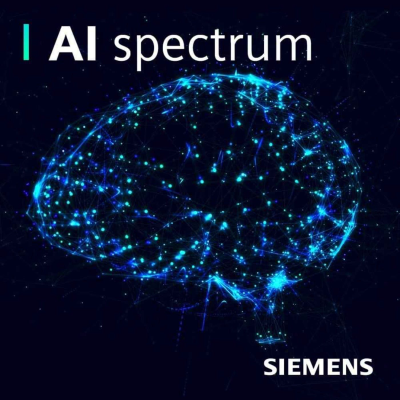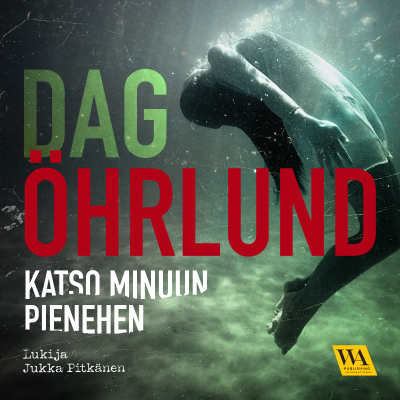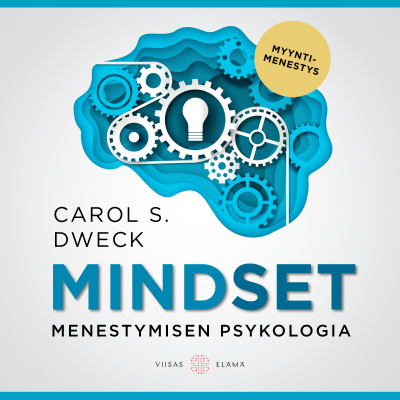
AI Spectrum
englanti
Teknologia & tieteet
Rajoitettu tarjous
1 kuukausi hintaan 1 €
Sitten 7,99 € / kuukausiPeru milloin tahansa.
- Podimon podcastit
- Lataa offline-käyttöön
Lisää AI Spectrum
AI Spectrum podcasts cover a wide range of artificial intelligence and machine learning topics. Listen to experts within Siemens and their customers talk about the impact of AI, success stories, and the future of AI. Gain insight into real world applications so that you can potentially apply AI within your world.
Kaikki jaksot
20 jaksotDesigning the Next Generation of AI Chips
Designing microchips is a daunting task which is growing increasingly challenging as new algorithms and software push the demand for efficient, specialized chips capable of running AI algorithms on everything from self-driving cars to edge IIoT sensors. To meet these demands in a timely manner, High-Level Synthesis (HLS) tools, like Siemens EDAs Catapult are proving themselves to be a vital tool in designing chips for the fast-passed world of AI technology. In this episode of AI Spectrum, Spencer Acain is joined by Russell Klein, program director at Siemens EDA and a member of the Catapult HLS team to discuss the benefits of HLS and why it is playing a key role in developing the AI accelerators of tomorrow. In this episode you will learn: · How Catapult can support AI (00:32) · AI accelerators vs. GPUs (02:32) · What is HLS? (04:25) · How HLS verifies algorithms instead of transistors (10:27) · Usage of HLS designed chips (11:32) Connect with Russell Klein: ·LinkedIn [https://www.linkedin.com/in/russell-klein-05484a2/] Connect with Spencer Acain: ·LinkedIn [https://www.linkedin.com/in/spencer-acain-a4267b125/]
How AI Revolutionized IC Validation and Characterization
Artificial intelligence has been a hot topic for the last few years as it starts to disrupt the status quo of countless industries but for EDA tools such as Solido, AI and ML have already become an indispensable proven technology. Solido leverages powerful machine learning abilities to provide answers that would normally require millions of simulations to acquire down to just a few thousand, offering a glimpse of where the AI industry may be going. In this episode, Spencer Acain is joined by Amit Gupta, VP & GM of the Analog/Mixed-Signal Division at Siemens EDA and serial entrepreneur and founder of Solido Design Automation before its acquisition by Siemens EDA in 2017. Amit discusses why he and his team were such early adopters of AI/ML technology and the benefits of using it in the EDA space. In this episode you will learn: · The role of AI in Solido (1:58) · The benefits of AI in EDA (4:00) · Validating multi-billion transistor chip designs using ML (8:32) · Why Solido was at the forefront of AI/ML adoption (15:16) · AI collaboration across industries (21:04) Connect with Amit Gupta: * LinkedIn [https://www.linkedin.com/in/gupta2/] Connect with Spencer Acain: * LinkedIn [https://www.linkedin.com/in/spencer-acain-a4267b125]
AI Spectrum – Simplifying Simulation with AI Technology - Part 4
Even as AI drives a new level of interconnectedness between tools, it also offers the potential to reinvent the way complex physics-based simulations are run. When it comes to the use of physics informed neural networks, or PINNs for short, a number of challenges are still left to overcome, however while the road ahead for PINNs is a long one, they offer the potential for great reward at the end as well. In this episode, Spencer Acain is joined once again by Dr. Justin Hodges, an AI/ML Technical Specialist and Product Manager for Simcenter. Justin discusses not only the ways AI is enabling connections between tools but also the challenges and benefits of PINNs and AI in physics going forward. In this episode you will learn: · How AI is driving connections between tools (00:32) · How AI is changing physics-based simulation (4:40) · The challenges of using PINNs (6:36) · The benefits of PINNs (8:50) · Where AI is going in the future (12:08) Connect with Justin Hodges: * LinkedIn [https://www.linkedin.com/in/justin-hodges-phd-3432a58b/] * Siemens Simcenter [https://www.plm.automation.siemens.com/global/en/products/simcenter/] Connect with Spencer Acain: * LinkedIn [https://www.linkedin.com/in/spencer-acain-a4267b125]
How is generative engineering changing mechanical design?
The products being designed and manufactured today must surpass the capabilities of what came before and then deliver them with fewer resources for various reasons, from environmental regulations to increased market competition. Making that happen is a challenging task, and even with some of the best tools, it can be difficult when relying only on the abilities of a few engineers and designers. As a result, computational resources in a digital business are becoming the differentiator for many companies looking to capture their market. To discuss this shift and what it means for the companies adopting these new techniques, one of our guest hosts – Nicholas Finberg, a writer for the Thought Leadership team at Siemens Digital Industries Software – sat down with one of the NX product managers – Tod Parrella. Together they talk through the concept of generative design, why it’s different from topology optimization, and how it can be applied to the other challenges businesses are trying to solve. If you are interested in learning more about the how of this process and what Siemens is doing with AI and machine learning to improve the capabilities, check out thesister podcast on the AI Spectrum series [https://blogs.sw.siemens.com/podcasts/ai-spectrum/ai-spectrum-examining-the-benefits-of-ai-powered-generative-design/]from Siemens Software – hosted by Spencer Acain. Connect with Tod Parrella: * LinkedIn [https://www.linkedin.com/in/tod-parrella-b2a2ba4/] Connect with Nick Finberg: * LinkedIn [https://www.linkedin.com/in/nicholasfinberg/]
AI Spectrum – Simplifying Simulation with AI Technology Part 3
AI is not only empowering tools to function with greater efficiency and usability, but it’s also helping spearhead the next generation of interconnected technologies which will help drive further innovation through a more holistic design approach. This in turn will help parallelize the traditionally serial design process, enabling a faster design cycle and exploration of a broader design space. In this episode, Spencer Acain is once again joined by Dr. Justin Hodges, an AI/ML Technical Specialist and Product Manager for Simcenter. Justin highlights some of the ways AI is helping build connections between different tools, and where that will lead in the future. In this episode you will learn: - How AI enables interconnected technology (2:18) - How AI is evolving through cross pollination between fields (5:57) - The ways AI facilitates the transfer of simulations and data between tools (10:47) - How AI will help parallelize the design process (14:33) - Knowledge capture through AI (16:55) Connect with Justin Hodges: * LinkedIn [https://www.linkedin.com/in/justin-hodges-phd-3432a58b/] * Siemens Simcenter [https://www.plm.automation.siemens.com/global/en/products/simcenter/] Connect with Spencer Acain: * LinkedIn [https://www.linkedin.com/in/spencer-acain-a4267b125]
Valitse tilauksesi
Rajoitettu tarjous
Premium
Podimon podcastit
Lataa offline-käyttöön
Peru milloin tahansa
1 kuukausi hintaan 1 €
Sitten 7,99 € / kuukausi
Premium
20 tuntia äänikirjoja
Podimon podcastit
Lataa offline-käyttöön
Peru milloin tahansa
30 vrk ilmainen kokeilu
Sitten 9,99 € / month
Premium
100 tuntia äänikirjoja
Podimon podcastit
Lataa offline-käyttöön
Peru milloin tahansa
30 vrk ilmainen kokeilu
Sitten 19,99 € / month
1 kuukausi hintaan 1 €. Sitten 7,99 € / kuukausi. Peru milloin tahansa.

































